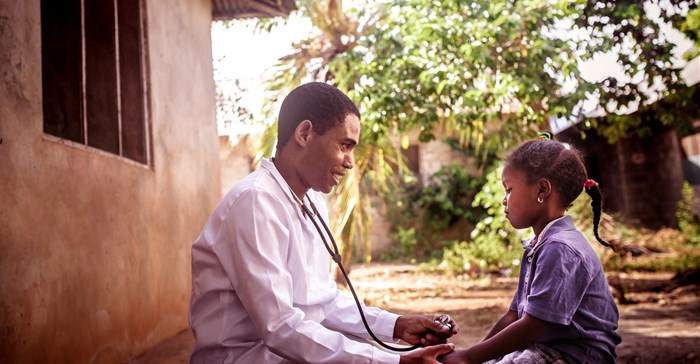To achieve universal healthcare in Africa, strong leadership, good governance structures and partnerships with the private sector are required to build a strong public health sector.

Image source: Getty/Gallo
The core to strengthening health systems is the provision of services and therefore financing interventions across the continuum of care is imperative. Infrastructure and equipment are pillars of healthcare as is the robust training of professionals and an adequate and equitable spread of health services, Chitalu Chilufya, minister of health in Zambia, told the Africa Health 2019 Leader’s Forum in Johannesburg.
He said that Zambia has made universal healthcare a priority and introduced the NHI Act of 2018. He added that the country transformational health policy, which introduced targets such as the malaria elimination target, would require elevated efforts to attaining these, and that strong leadership and a multisectoral approach would be required.
Funding and training
“The current mechanisms to fund healthcare were not yielding dividends and that new innovative funding models were required. It is imperative that leadership in health take cognisance of this, saying that ‘political will is indispensable to good health systems’,” he said.
Quality, and especially human resource quality, is an essential component of a robust health system. To address this in Ethiopia, Dr Dawit Moges, CEO of Sr Aklesia Memorial Hospital in Addis Ababa, said that while his country is planning to produce 3,000 physicians a year, there is a need to ensure that these health professionals have access to practical training before they practice. He added that the Ethiopian government has started a more patient-orientated service where the patient is at the centre of the care they receive.
Partnerships
Dr Ola Orekunrin, MD of Flying Doctors in Nigeria said that the importance of partnerships had been recognised by Sustainable Development Goal 17. She believes that health engagement should extend beyond just doctors and politicians and should include others, such as technology experts, so that they are able to design the products that are needed.
She added that financial constraints in Africa means that, “we have to do more with less”. To make her point Orekunrin said that she brought helicopter ambulances to Nigeria to save lives but each trip was $20,000 and Nigeria just couldn’t afford it. “So we started speaking to commercial airlines and put an ambulance hub in aircraft which reduced the cost from $20,000 to $1,000.”
Orekunrin believes that there are learnings from other countries such as India where procedures like a coronary bypass are performed at a fraction of the cost of the USA, with better outcomes















































